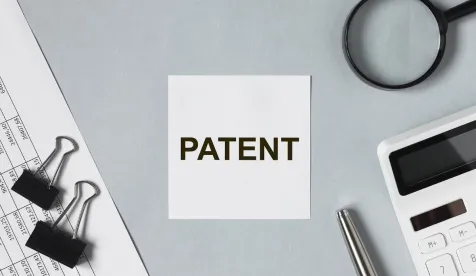A split panel of the US Court of Appeals for the Federal Circuit concluded that the structure and functions of the Patent Trial & Appeal Board (PTAB) survived yet another constitutional challenge, this time based on the PTAB’s fee and compensation structure, lack of director review over the institution decision and applicability of the Takings Clause. Mobility WorkX, LLC v. Unified Patents LLC, Case No. 20-1441 (Fed. Cir.) (Dyk, J.) (Newman, J., dissenting).
With the dust barely settled after the Supreme Court’s ruling in US v. Arthrex, Inc. that the PTAB’s rendering of final written decisions without director review violated the Appointments Clause, this case presented a whole new slate of potential deficiencies with the PTAB. Although none of these deficiencies were initially raised with the PTAB, the Court exercised its discretion to nonetheless consider the challenges based on publicly available records that it could judicially notice.
The first challenge, already made in many other cases, was that the Federal Circuit remand for the director to consider a rehearing petition in view of Arthrex. This remedy, already afforded in other post-Arthrex challenges, was a simple grant. Yet, here, Mobility asked for something more, arguing that because the director did not resolve the inter partes review (IPR) within the 12-month statutory period, the director must confirm the claims or dismiss the IPR. The Court declined to rule on this issue, instructing Mobility to raise the issue on remand.
The issue receiving the most attention by the Federal Circuit was Mobility’s claims that the PTAB’s fee structure and bonus payments to administrative patent judges (APJs) based on their workload violated the Due Process Clause. According to Mobility, the APJs have a financial incentive to institute IPRs (i.e., significant fees), which provide a significant benefit to the agency. But the Court concluded that the APJs (even the leadership APJs) have only an attenuated role in budget control and thus have an insignificant interest in the financial health of the US Patent & Trademark Office as a whole. Because Congress holds the purse strings and the more significant budget responsibilities fall on the director and the president, the majority held that little connection existed between institution decisions and the agency’s overall financial health, which was consistent with the Court’s own precedent regarding reexaminations and other circuits’ precedents regarding executive agency fee collection. This attenuated connection differentiated the PTAB’s collected fees from Supreme Court cases that found due process violations based on the structure of certain executive courts presided over by a mayor who also held concomitant budget responsibilities.
Similarly, the Federal Circuit held that the APJs’ incentive to render a certain number of decisions—i.e., APJs receive bonus payments if they earn at least 84 decisional units, and the number of decisions is part of performance evaluation—did not provide an unconstitutional incentive to institute. The majority reasoned that ample alternative means existed for the APJs to earn their bonuses, namely, the ability to volunteer for non-America Invents Act (AIA) decisions (such as ex parte appeals), of which a backlog exists. The panel discounted the argument that institution would provide the APJ panel easy access to additional decisions as “too remote to constitute a due process violation.”
The Federal Circuit also rejected several other constitutional challenges by relying on its own precedent resolving similar issues in other cases. For example, the Court held that the director’s delegation of the institution decision to the same judges that hear a petition on the merits was permissible, citing its decision in Ethicon Endo-Surgery v. Covidien, and that AIA review does not violate the Fifth Amendment’s proscription on uncompensated takings, citing its decision in Celgene v. Peter.
Judge Pauline Newman penned a dissent expressing significant concern about the nature of AIA proceedings. She argued that because institution decisions are final and nonappealable, the director’s lack of involvement creates an Appointment Clause problem similar in nature to that expressed in Arthrex. Judge Newman also voiced concerns about prejudgment bias (stemming from the siting of institution and merits decisions in the same panel), structural bias introduced by the financial incentives identified by Mobility and the appearance of bias produced by these facets.
Practice Note: This case is unlikely to be the last word regarding the constitutionality of the AIA, a topic that continues to prompt controversy almost a decade after enactment.




 />i
/>i

